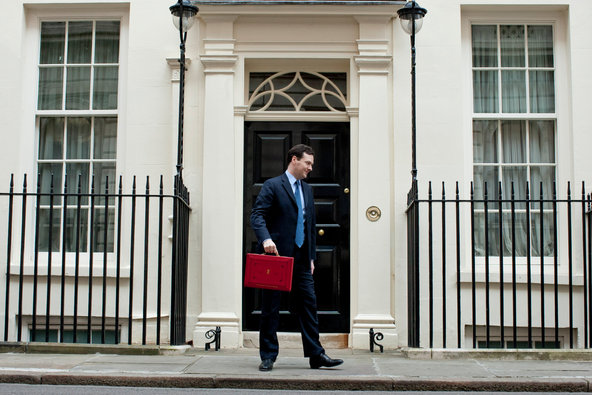The document, to be published Monday, is the latest of three studies by the British government meant to sway opinion in Scotland ahead of next year’s planned referendum there on independence.
Last month the British government suggested that an independent Scotland would not be able to keep the pound sterling and would have to either adopt its own currency or use the euro.
The new study, a summary of which was made available ahead of publication, highlights the size of Scotland’s banking sector — much of which had to be rescued by British taxpayers after the financial crash — relative to the rest of the Scottish economy. The sector stands at 1,254 percent of Scotland’s gross domestic product, compared with banking assets in Britain worth 492 percent of G.D.P., the document says.
“By way of comparison, before the crisis that hit Cyprus in March 2013, its banks had amassed assets equivalent to around 700 percent of its G.D.P. — a major contributor to the cause and impact of the financial crisis in Cyprus and the ability of the Cypriot authorities to prevent the systemic effects when it hit,” the study says.
The document adds that by the end of 2007 Icelandic banks had amassed consolidated assets equivalent to 880 percent of Icelandic G.D.P.
It cites the verdict of the Organization for Economic Cooperation and Development, which said that “the banks grew to be too big for the Iceland government to rescue.
“Banking in these circumstances became very dangerous when the global financial crisis deepened,” it said.
The study says that “a serious banking crisis in an independent Scotland could pose a significant risk to Scottish taxpayers,” with the potential economic fallout amounting to about 65,000 pounds ($98,600) per capita.
The paper concludes that Scottish banks could either have to accept higher risks and costs associated with volatility or restructure and diversify their assets.
John Swinney, finance secretary of the Scottish government, which supports independence, dismissed that document as “a discredited, feeble attempt to undermine confidence in Scotland’s ability to be a successful independent country” adding that “it will not work.”
Mr. Swinney said that he had viewed a leaked draft of the paper and that much of it “seems to be based on a flawed, outdated view of the world which takes no account of the substantial banking reforms which have been ongoing across Europe since 2008.”
The Treasury’s study counted Scottish banks as all those registered in Scotland, including the Royal Bank of Scotland — but excluding NatWest, which is part of the group but is registered in London, and excluding assets of RBS’s foreign subsidiaries.
Bank of Scotland, which is part of the Lloyds Banking Group, is included as a Scottish institution as it is registered in Scotland.
Untangling Scotland’s banks from the broader British financial sector would be a highly complex task were Scots to vote for independence, because both RBS and Lloyds Banking Group were bailed out by British taxpayers after the financial crash.
The British government owns 80 percent of RBS and 40 percent of Lloyds, which are both run from London. That would almost inevitably require some changes in ownership in the event of independence.
Nevertheless the Treasury’s study argues that the total support provided to RBS in 2008 would have been the equivalent of 211 percent of Scotland’s G.D.P. By contrast the total British interventions across the whole banking sector were 76 percent of the country’s G.D.P.
The document also adds that any attempt at shared regulatory arrangements between an independent Scotland and the continuing United Kingdom would be “significantly more complex than those that currently exist” and would be likely to increase the costs for firms of complying with this regulation.
Article source: http://www.nytimes.com/2013/05/20/business/global/british-study-raises-warning-on-scottish-banks.html?partner=rss&emc=rss
